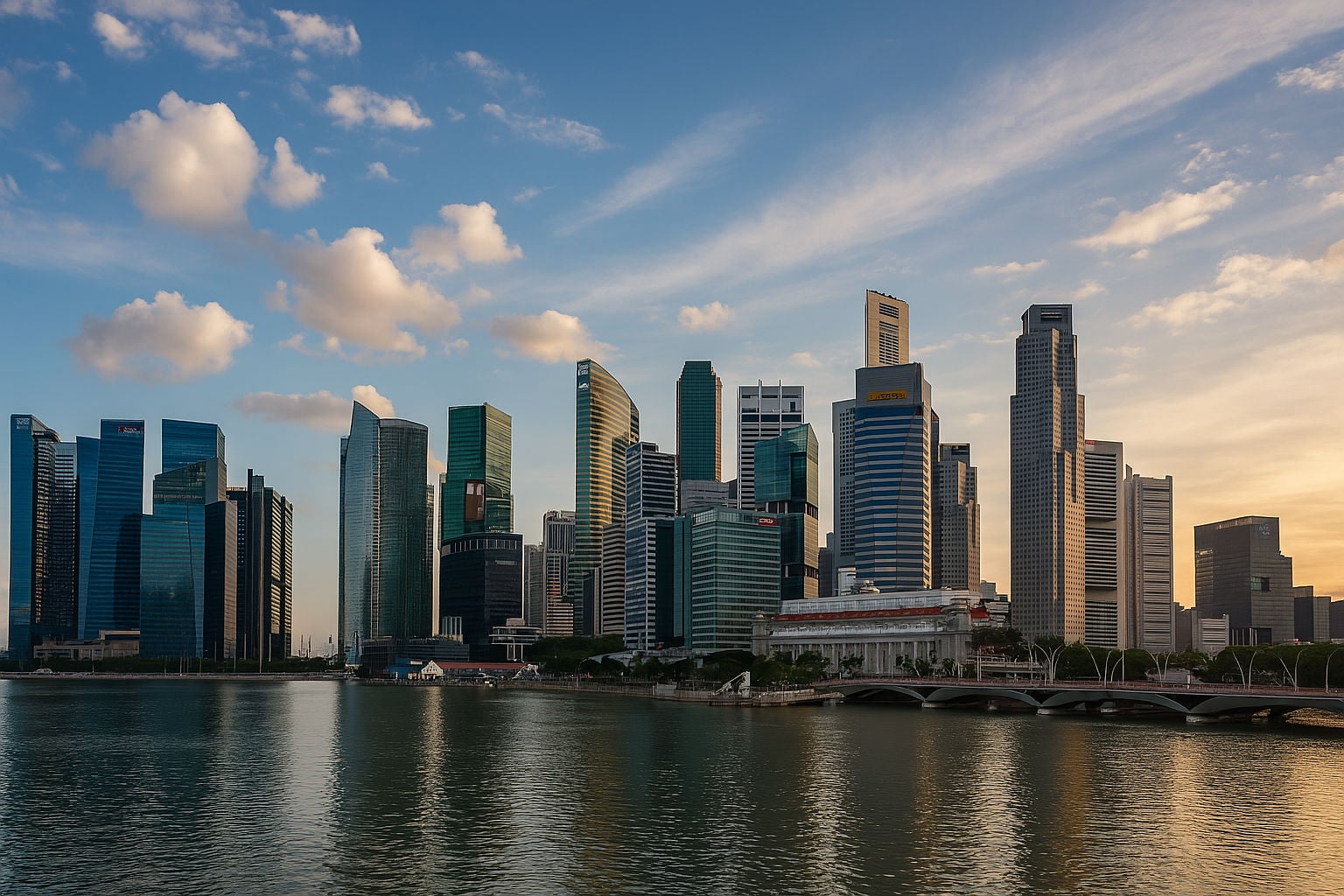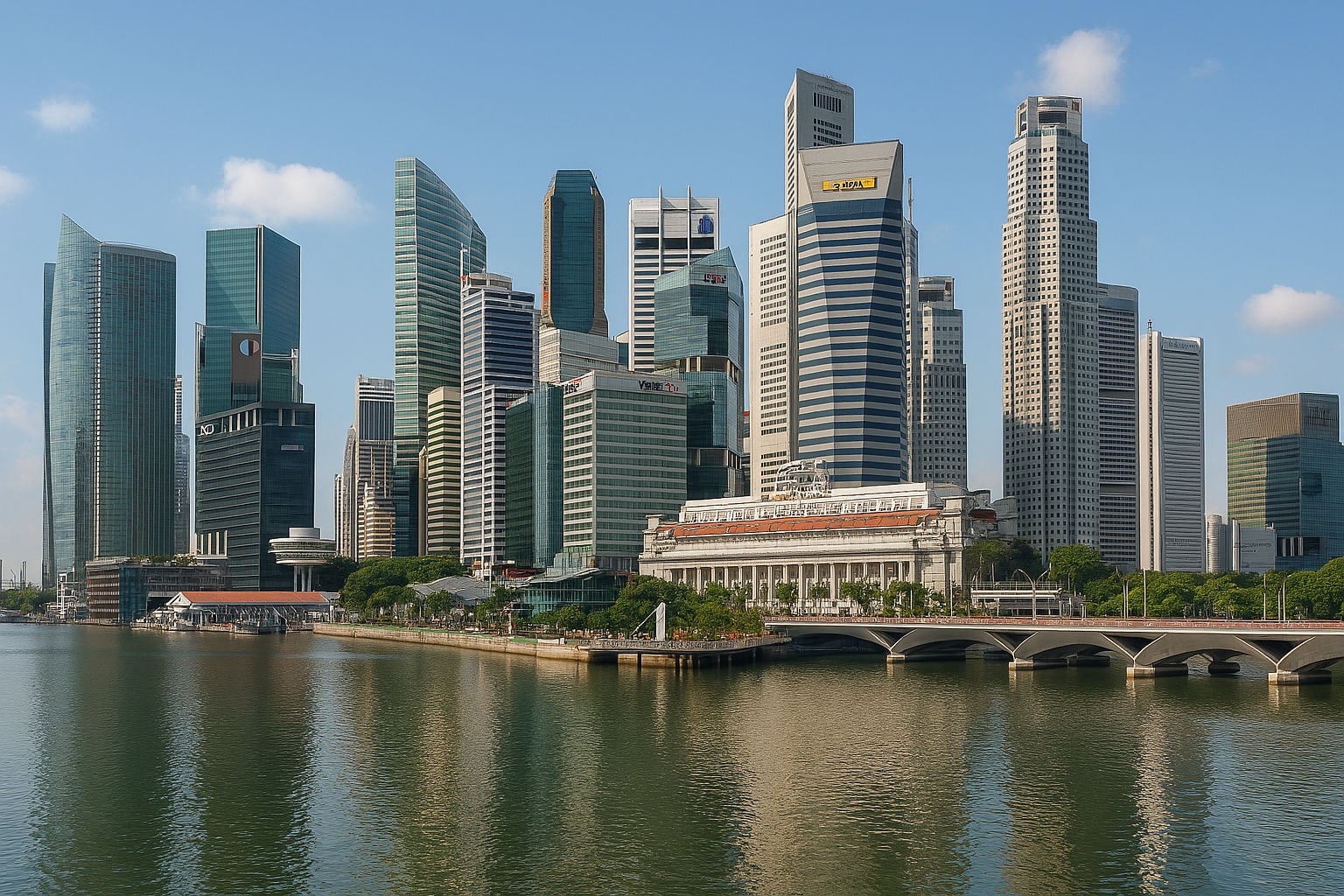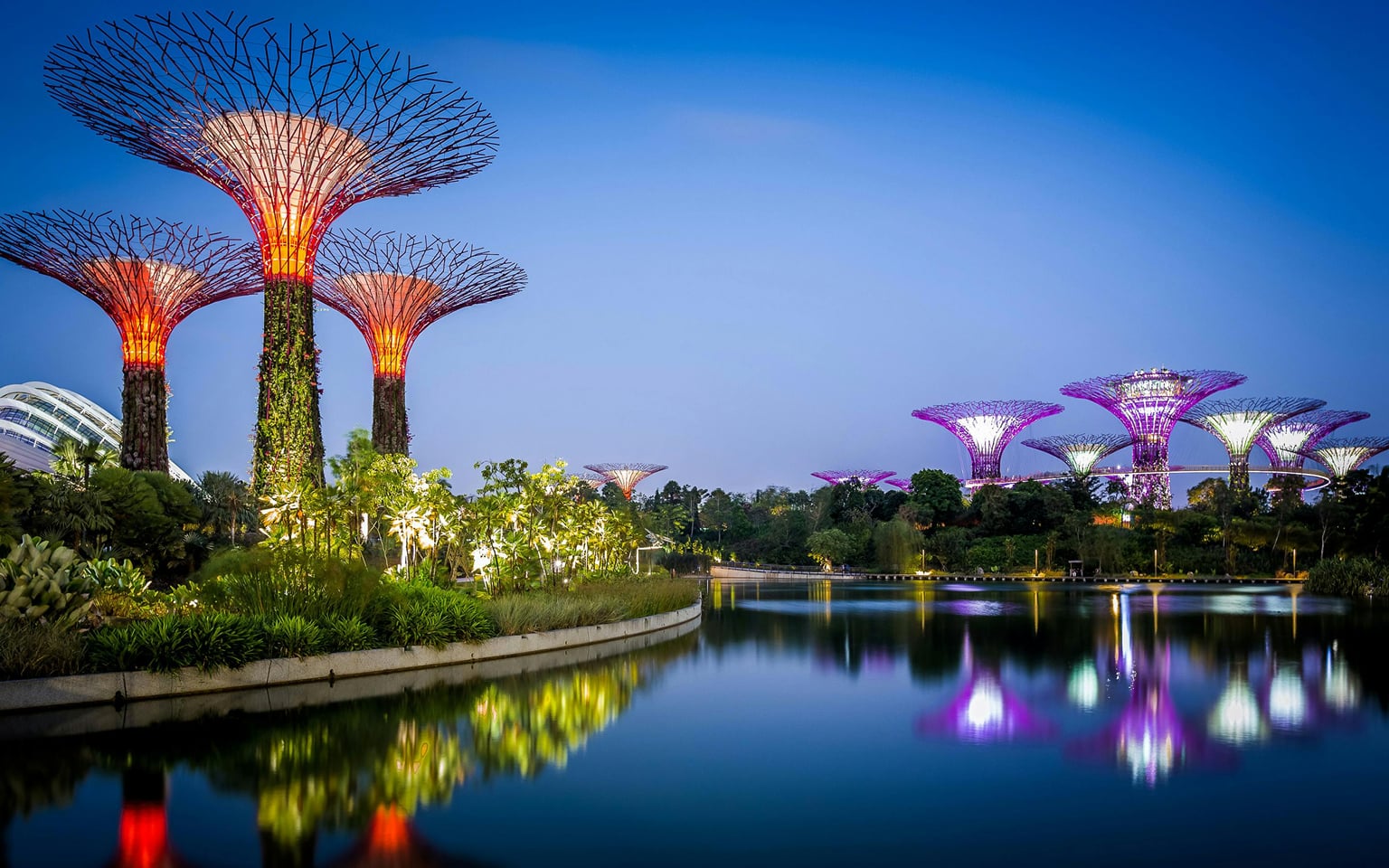🇸🇬 Singapore: A Model of Resilience, Strategy, and Growth

An in-depth look at Singapore’s economic, political, legal, and environmental landscape, uncovering the strategy behind its transformation into one of Asia's most competitive nations.
1st Mar 2025

Over the last few decades, Singapore has transformed itself from a modest trading post into a gleaming beacon of prosperity in Southeast Asia. Once resource-scarce and reliant on imports, it now ranks as one of the world's most competitive and innovative economies.
My inspiration to write this blog came from the four times I transited through Changi Airport on my journeys to Manila and Sydney. Each visit left me more amazed than the last. From the efficient immigration process and lush indoor gardens to the Jewel’s mesmerizing rain vortex, Singapore seemed to reinvent itself every time I passed through. It was in those fleeting moments, walking between terminals, that I sensed something deeper—a nation continuously redefining excellence.
This transformation is no accident—it is a result of meticulous planning, disciplined governance, and a culture that values both tradition and progress.
📈 Economic Transformation: From Surviving to Thriving
When Singapore gained independence in 1965, its GDP per capita was less than USD 500. It had no natural resources, a small domestic market, and high unemployment. Fast forward to today, Singapore is one of the world’s wealthiest nations, with a sovereign wealth fund exceeding USD 700 billion, managed through Temasek Holdings and GIC.
A combination of free-market principles, openness to global trade, and government-led investment has paved the way for this transformation. Its port, consistently ranked among the top 2 busiest in the world, facilitates trade with over 600 ports in 120 countries. The Changi Airport, aside from being a traveler’s dream, is a critical logistics and economic node.
The government launched Industry Transformation Maps (ITMs) covering over 20 sectors, aiming to future-proof Singapore’s economy by leveraging automation, AI, and digital technologies. These strategies ensure sustainable growth amidst global uncertainty and technological disruption.
Singapore’s economic journey has been nothing short of remarkable. It has sustained an average annual GDP growth of 6–7% for most of the past 30 years. In 2024, its GDP per capita stood at over USD 90,000, the highest in Southeast Asia.
Key contributors to this success include:
- Strong private consumption and external demand
- Strategic investments in infrastructure and innovation
- A proactive government encouraging economic diversification
The shift toward knowledge-based industries—such as biotechnology, finance, and technology—has helped cushion the economy from the risks of over-reliance on manufacturing or trade.
📊 Singapore ranked #1 in Asia and #4 globally in the IMD World Competitiveness Ranking 2023.

🏛️ Political Stability: The Bedrock of Progress
Singapore’s political stability is rooted in strong institutions, low corruption, and an efficient civil service. The People’s Action Party (PAP) has been in power since independence, allowing continuity of vision and long-term policy planning.
The Corrupt Practices Investigation Bureau (CPIB) is among the most respected anti-corruption agencies worldwide. Transparency International consistently ranks Singapore as the least corrupt nation in Asia, and among the top 5 globally.
Despite its strong central leadership, there are ongoing conversations around political diversity, media freedom, and civic participation. The rise of digital platforms has opened limited but growing space for public discourse and alternative narratives.
Political risk in Singapore is among the lowest globally, according to the Political and Economic Risk Consultancy (PERC). A well-functioning democracy with consistent leadership has enabled peace, lawfulness, and predictability—qualities that investors and businesses value highly.
However, concerns about limited freedom of speech and legal risks for opposition voices remain, especially under Singapore's strict defamation laws.
📚 Social Values & Workforce Ethic
Singapore is a multicultural mosaic with major ethnic groups including Chinese (~74%), Malays (~13%), and Indians (~9%). This diversity is celebrated through festivals, food, and a harmonized public housing policy that prevents ethnic enclaves.
The country invests about 20% of its annual budget in education, ensuring world-class schooling and lifelong learning. The SkillsFuture initiative offers credits to every citizen for upgrading their skills in tech, languages, and vocational trades.
Workforce participation among women has also risen steadily, contributing to Singapore’s labor market resilience. The average life expectancy is now 84.8 years, among the highest globally, underscoring healthcare access and public health education.
Singaporean society upholds traditional family values while embracing global modernity. Its literacy rate exceeds 96%, and primary education is compulsory. The dual-language proficiency (English and Mandarin) of its citizens makes it ideal for global business.
Yet, blue-collar jobs remain unattractive to locals—construction and sanitation roles often rely on foreign labor.
💡 Tech-Forward by Design
The digital economy contributes over 17% to Singapore’s GDP and is expected to reach USD 30 billion by 2030. The government supports over 200 smart city projects, from AI-powered traffic systems to blockchain-based logistics platforms.
The Infocomm Media Development Authority (IMDA) provides grants and incubator support to startups, especially in fintech and biotech. Companies like Grab, Sea Group, and Razer have grown from Singaporean roots into global tech players.
Singapore is also one of the first countries in Asia to pilot autonomous vehicles and has rolled out nationwide 5G coverage ahead of schedule.
Singapore's tech scene is thriving. With over 92% internet penetration, it's home to a rapidly growing digital economy.
- Over 70% of households have broadband internet.
- Speeds exceeding 10 Mbps are the norm.
- Government initiatives like Smart Nation are building AI, data, and IoT infrastructure.
💡 E-commerce transactions in Singapore are projected to exceed USD 9 billion by 2025.
⚖️ Legal Framework: Trust, Transparency, Trade
Singapore ranks #2 in the World Bank’s Ease of Doing Business Index, thanks to its fast business registration process (often under 24 hours), independent judiciary, and enforceable contracts.
It is a signatory to over 70 bilateral investment treaties and 27 Free Trade Agreements, making it an ideal base for multinational headquarters. Arbitration and mediation centers in Singapore attract cross-border legal cases from Asia-Pacific and beyond.
Regulatory sandboxes in fintech and AI ensure innovation thrives while consumers stay protected.
The city-state's business-friendly laws promote innovation and investment security. Some key developments include:
- The Electronic Transactions Act (ETA) introduced in 1998
- Strong IPR protections
- Transparent tax and trade regulations
Singapore also enacted cross-border e-commerce laws, easing international digital trade.
🌱 Environmental Challenges & Innovation
Despite its size, Singapore is a global leader in urban sustainability. It’s one of the first countries to impose a carbon tax, set at SGD 5 per ton (rising to SGD 25 by 2024 and SGD 50-80 by 2030).
Green building standards, like the BCA Green Mark, incentivize eco-friendly architecture. Over 80% of buildings are expected to be certified green by 2030.
The Singapore Green Plan 2030 outlines goals such as:
- Planting 1 million trees
- Quadrupling solar energy deployment
- Reducing landfill waste by 30%
Singapore faces serious environmental challenges—chief among them, water scarcity. It imports water from Malaysia and complements this with innovations like:
- NEWater: ultra-clean, high-grade reclaimed water
- Desalination plants producing potable water
Yet, carbon emissions and biodiversity loss remain concerns. Singapore has lost 30% of its mangroves, and many native species face extinction.
🧪 The Water Pollution Control and Drainage Act plays a key role in protecting water quality.

🧭 Conclusion: Small Nation, Big Vision
Singapore is more than a business hub—it's a case study in excellence. Strategic foresight, resilient governance, and a commitment to innovation have transformed it into one of the world’s most dynamic economies.
As Singapore looks to the future, it’s poised to remain a top destination for global talent, capital, and ideas.
Sources: Department of Statistics Singapore, IMD World Competitiveness Yearbook, Political and Economic Risk Consultancy, Ministry of Environment Singapore, EDB Singapore.
Comments
Sign in to leave a comment